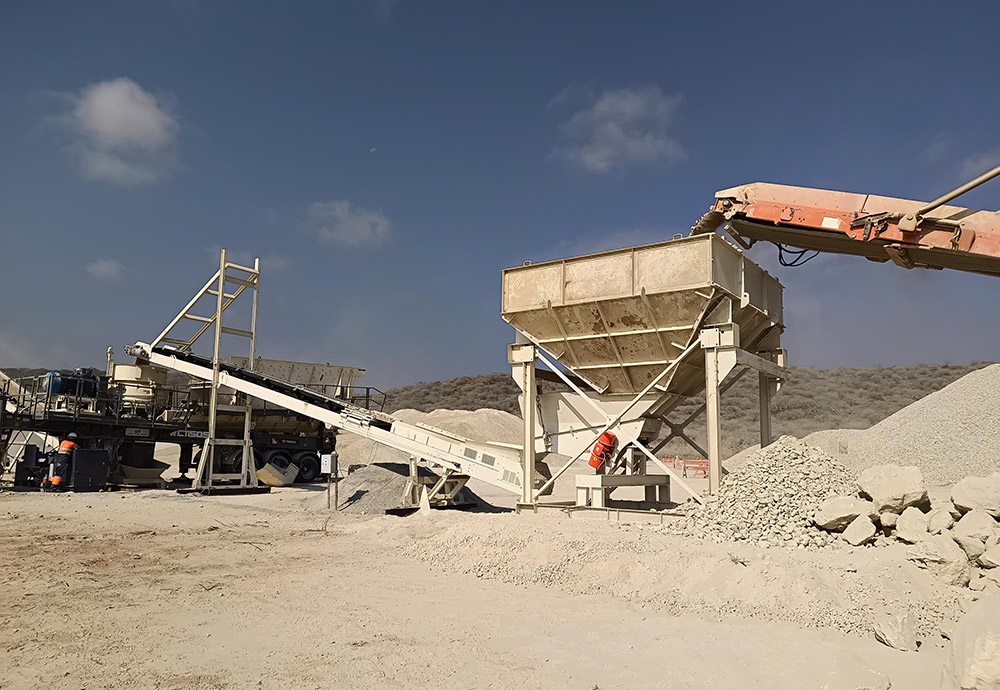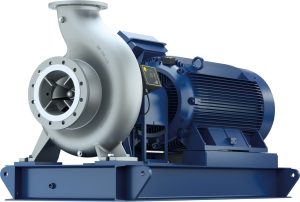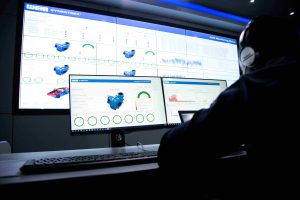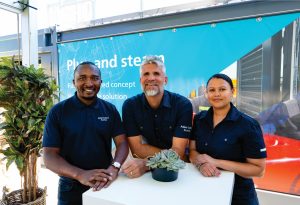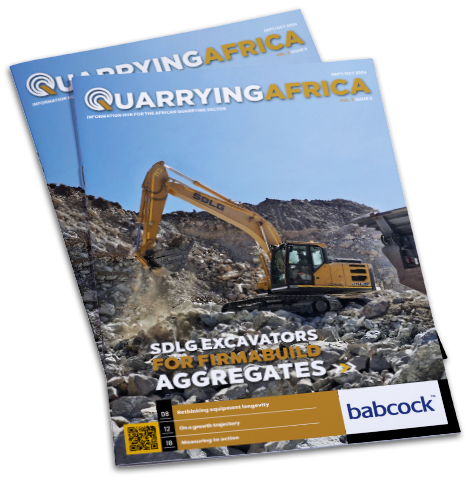On September 1, 2023, Consulmet (Pty) Ltd (Consulmet) signed a distributorship agreement with Terex GB Ltd for the sales and support of the Terex MPS equipment range and spares in Angola, Botswana and Namibia. With its traditional expertise in the design and construction of metals and minerals processing plants, distributing and supporting capital equipment was a completely new undertaking for Consulmet, which called for the establishment of a new division, Consulmet Equipment, to look after the Terex MPS business in the three Southern African countries.
Ken Bouch, head of Consulmet Equipment, tells Quarrying Africa that the company is taking a phased approach to its business. Initial focus has been placed on Angola, a market where the company will leverage the existing Consulmet projects footprint and support resources to kickstart its business. The next focus country will be Namibia, and eventually Botswana.
“Instead of ‘jumping’ into the three countries at once, we have taken a decision to gather the required experience through our Angolan venture first before we spread out into the remaining two countries. The decision to start with Angola is because we have good infrastructure and an existing support partner, TecProMic Lda, in the country. The next step is to develop our support infrastructure in Namibia and Botswana before we roll out into those two countries,” explains Bouch.
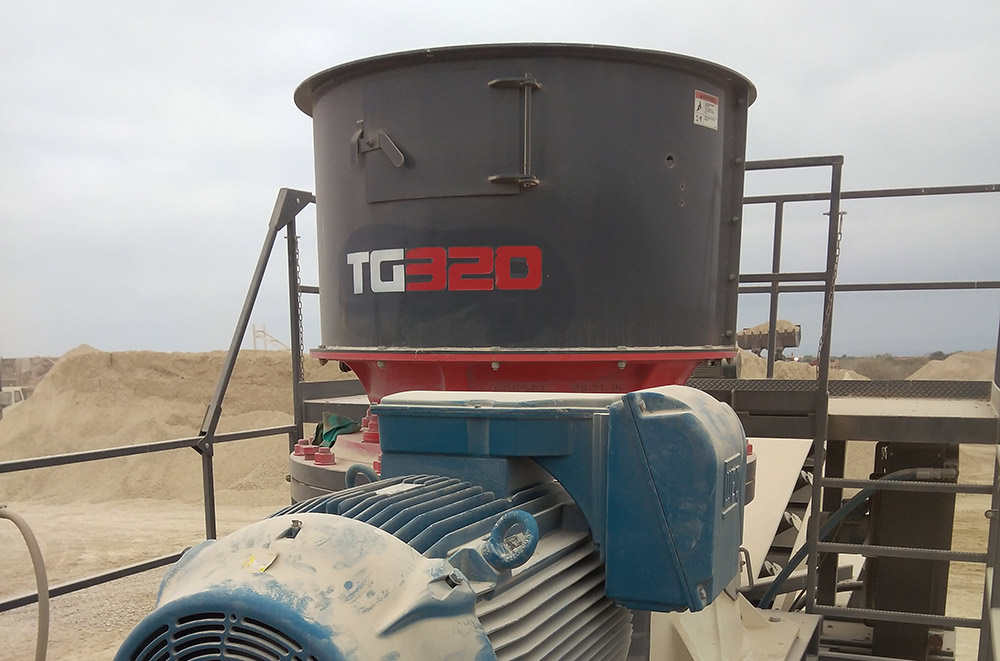
First project
Having previously pursued this deal for 12 months through its parent company, Consulmet, Consulmet Equipment scored its first plant project for a well-established construction, crushing and aggregates company in Angola, Costa Blanca, Angola, shortly after signing the distributorship agreement with Terex MPS.
An avid Terex proponent, Costa Blanca, Angola has over the years operated several Terex equipment brands with great success, including Terex MPS, and it was a ‘no-brainer’ for them to opt for a complete Terex MPS plant for its new crushing project.
Initially, the plant was targeted for Costa Blanca’s quarry in Dande, just outside Luanda, which is currently supplying aggregates for the development of Angola’s sixth seaport, the Barra do Dande Port, some 50 km north of the capital, Luanda. Upon delivery of the plant at the Luanda quarry, Costa Blanca opted to rather have it installed on one of its pressing crushing projects in Lobito, some 500 km from Luanda.
Here, the company has been contracted to provide crushing services for a large limestone quarry supplying aggregates for the local construction industry. The new plant has been brought to Lobito to supplement the current production capacity.
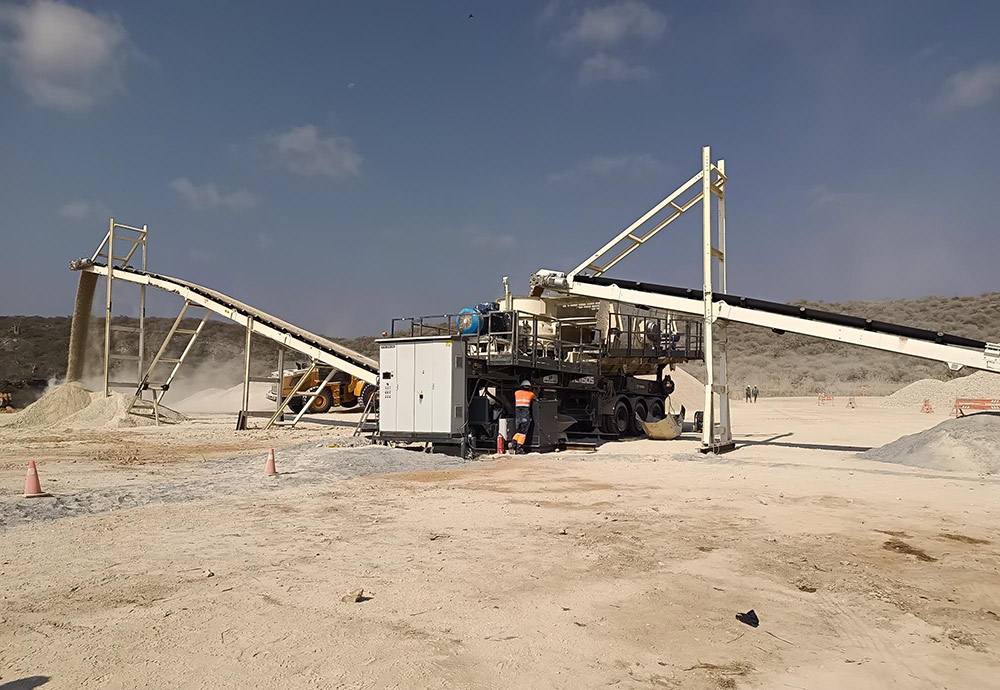
Plant in detail
For this project, Consulmet Equipment supplied a WC1150S wheeled cone crusher and screen combination; conveyors and a surge bin with a VSD pan feeder. The client also purchased a wheeled CRC320 cone crusher plant; and a wheeled CRS820H screen plant to complement the mobile crushing plants which they already had on site. All equipment purchased was assembled, installed and commissioned by the in-country Consulmet Equipment team, supported by TecProMic Lda and Terex MPS.
Commenting on why the client opted for these particular, Terex MPS wheeled plants, Bouch says one of the major drivers of the decision was the client’s desire to move from diesel-driven mobile crushing equipment to a completely electric plant, for the obvious cost benefits, while maintaining the mobility required to move from one project to the other. In addition, the client’s decision was influenced by the higher efficiency from the electrical units, as opposed to the diesel driven units.
The client, says Bouch, was also impressed by the WC1150S, a cone crusher and screen on one wheeled chassis. At the heart of the plant is the 225-kW Terex TC1150 cone crusher and a 6’ x 20’ triple-deck screen. A level sensor over the cone crusher regulates the feed, from the surge bin/VSD pan-feeder, to ensure the chamber is continually choke-fed, thus ensuring maximum production and liner life, as well as optimal product shape. The large onboard triple-deck screen allows for the production of three different sized products from a single plant.
Support matters
To ensure reliable customer support, Consulmet Equipment has deployed a fully equipped and trained team of technicians in Angola for installation, servicing, maintenance and refurbishment of Terex MPS and other Terex equipment. The team is supported by Consulmet’s local Angolan partner, TecProMic Lda, which warehouses Terex MPS equipment and spares in Luanda and Saurimo.
“For our first plant, we have signed a spares consignment agreement with Costa Blanca. We have committed to providing the client with two containers of critical spares for the equipment that we have supplied and we will continually replenish as and when required,” says Bouch. “Testimony to our commitment to high levels of customer satisfaction, we are also establishing a local warehouse facility in partnership with TecProMic Lda, to ensure spares availability.”
To ensure high plant uptime, Consulmet Equipment has deployed a highly experienced technician on site, who is supported by a junior technician and a local driver, who also assists with bridging the language barrier. “The vision is to expand the team in future as we get more projects,” he says.
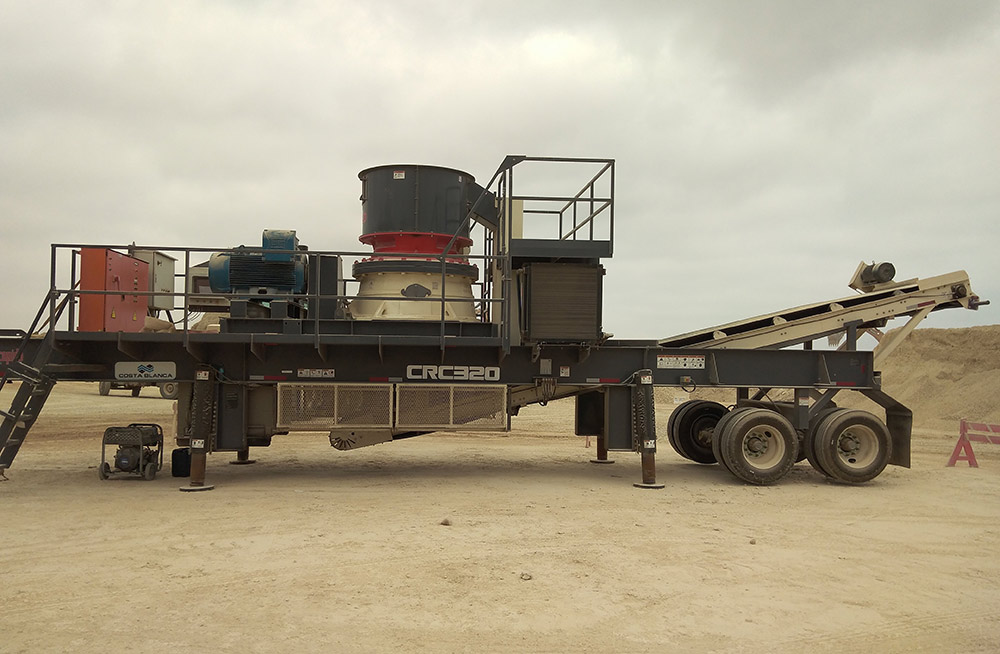
Bright prospects
Speaking of future projects, Bouch is encouraged by the hive of infrastructure activity in Angola. To provide context, Consulmet Equipment is already negotiating for a larger 750 tph plant for Costa Blanca’s Luanda quarry site, while equipment for another 600 tph plant for the Lobito project is already in place and only awaiting the arrival of conveyor belts and surge bins. This is scheduled for the second half of August this year.
The new Lobito plant will service the required aggregates for the local construction industry as well as possibly for the Lobito Corridor project. Towards the end of 2023, the United States and the European Union pledged their support for the advancement of the Lobito Corridor. On September 9, 2023, the governments made a joint statement announcing support for the corridor and that a Greenfield Rail Line Feasibility Study would be commissioned to explore establishing a new rail line from Angola through Zambia’s Copperbelt region. The rail extension project through Zambia is planned to conclude in five years by 2029, and Costa Blanca is well positioned to supply aggregates for this project.
Elsewhere, Costa Blanca is looking to boost capacity at its Luanda quarry, which has already supplied materials for the ongoing Barra do Dande Port project. The company has been contracted to supply backfill and aggregates for the construction of the port.
The massive port is being developed through public-private partnerships with Angola’s national oil company, Sonangol, and entails the construction and installation of 29 storage tanks, terminals for solid and liquid bulk materials, as well as a container terminal, multi-use terminal, and petroleum support zone. Additionally, the project will see the construction of an 18,25 km quay wall, an embarkment area of 10,5 km², and a logistics support zone of 4,68 km². The total cost of the port development is a whopping US$1,5-billion.
“For this project, we are looking at providing a 750 tph plant to produce 0-40 mm material as well as sized aggregates. The front-end, up to the secondary crusher, will be modular, while the rest of the plant, from the secondary crusher, will be mobile. This layout will allow the client to “chop and change” the layout as and when required to meet production requirements of certain material sizes,” explains Bouch.
Bouch is excited about prospects of growth in Angola, where he says the infrastructure development prospects are massive. The country’s extensive coastline and natural resources provide opportunities for port expansion and maritime infrastructure. Investment in road, rail and airport projects is planned in order to improve connectivity and trade. Furthermore, the energy sector is benefitting from investments in renewable energy sources and power generation to meet the growing demand. “Angola is an infrastructure and mining hotspot and we believe that there is still so much more to come,” concludes Bouch.
